The Nature Discovery Center is partnering with Discovery Green to offer urban birding opportunities, wildlife encounters, crafts and activities, and a mindfulness experience during Paloma, a temporary art installation of glowing origami birds at Discovery Green. To learn more about the special programming being offered during the art installation, click here.
Urban Bird Walks
Walk with an expert to discover the real wildlife of downtown Houston! These free workshops will begin and end at Discovery Green. Wear your walking shoes and meet at the Lakehouse Café in the park.
Saturday, December 14, 4 – 5 pm
Friday, February 14, 11:30 am – 12:30 pm Lovebirds for Valentine’s Day!
Mindfulness in Nature
Saturday, January 11, 11 am – 1 pm
Led by Bethany Foshee of Nature Discovery Center & Heather Sullivan of Mindfulgreen. Join us for a talk about the benefits of mindfulness and nature, followed by three guided meditations on sound, breath, and sensation. Then we’ll lead a mini nature journaling workshop – exploring how art, poetry, and observations help us to find a renewed sense of calm and appreciation for our surroundings. Materials provided or you’re welcome to bring your own journal or sketch book!
For the Birds!
Saturday, February 1, 11 am – 3 pm
Nature Discovery Center and Discovery Green partner to present bird crafts, birding 101 station, hands-on homing pigeon encounter, Wild Birds Unlimited, and an astonishing demonstration by Birds of Prey.


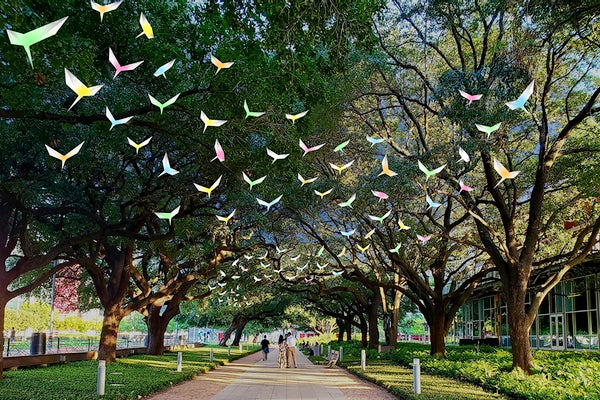
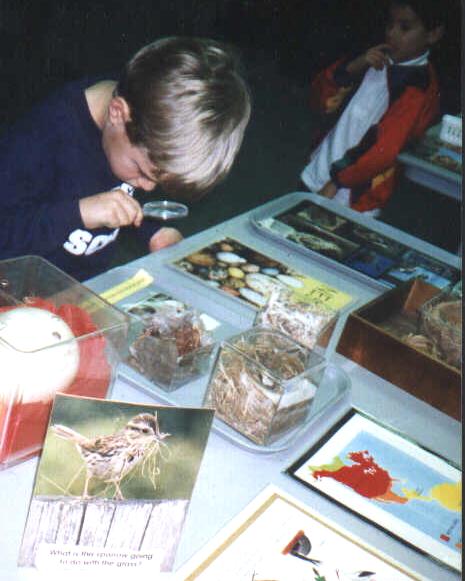
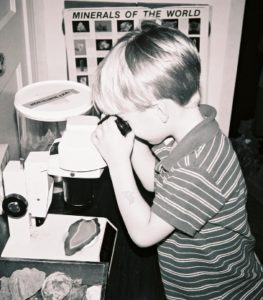 Over the next month or so, staff at the Nature Discovery Center will be making mission driven changes to our Discovery Rooms that will take the rooms back to the Center’s roots as a place of exploration and discovery. Visitors will notice a shift in focus from indoor nature play to hands-on learning at activity and observation stations designed to ignite curiosity, understanding, and respect for nature. While we still want to encourage nature based imaginative exploration upstairs, we want to move away from indoor play for play’s sake and hopefully discourage the misuse of specimens and Discovery Room tools that have too often been incorporated into the play-based experience our visitors have had in recent years.
Over the next month or so, staff at the Nature Discovery Center will be making mission driven changes to our Discovery Rooms that will take the rooms back to the Center’s roots as a place of exploration and discovery. Visitors will notice a shift in focus from indoor nature play to hands-on learning at activity and observation stations designed to ignite curiosity, understanding, and respect for nature. While we still want to encourage nature based imaginative exploration upstairs, we want to move away from indoor play for play’s sake and hopefully discourage the misuse of specimens and Discovery Room tools that have too often been incorporated into the play-based experience our visitors have had in recent years.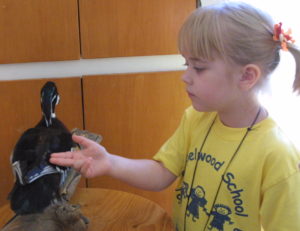 We are excited by these changes, and we can’t wait to see our visitors make new discoveries as they interact with natural objects, explore with kid friendly tools of the trade, “research” areas of interest in resource books, create simple nature crafts, and engage with volunteers and naturalists at themed demo and activity tables. We know there will be a period of adjustment as our visitors acclimate to our new Discovery Room philosophy, but we also know that the changes will be rewarding and worth it! Connecting kids with nature and igniting their curiosity through hands-on discovery is our passion!
We are excited by these changes, and we can’t wait to see our visitors make new discoveries as they interact with natural objects, explore with kid friendly tools of the trade, “research” areas of interest in resource books, create simple nature crafts, and engage with volunteers and naturalists at themed demo and activity tables. We know there will be a period of adjustment as our visitors acclimate to our new Discovery Room philosophy, but we also know that the changes will be rewarding and worth it! Connecting kids with nature and igniting their curiosity through hands-on discovery is our passion!
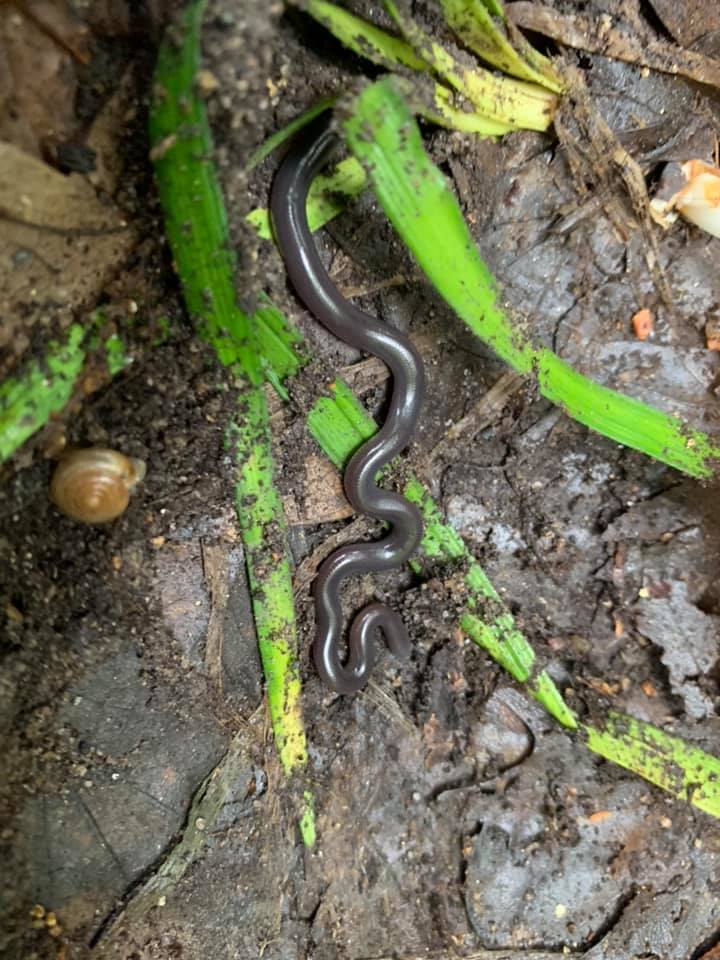
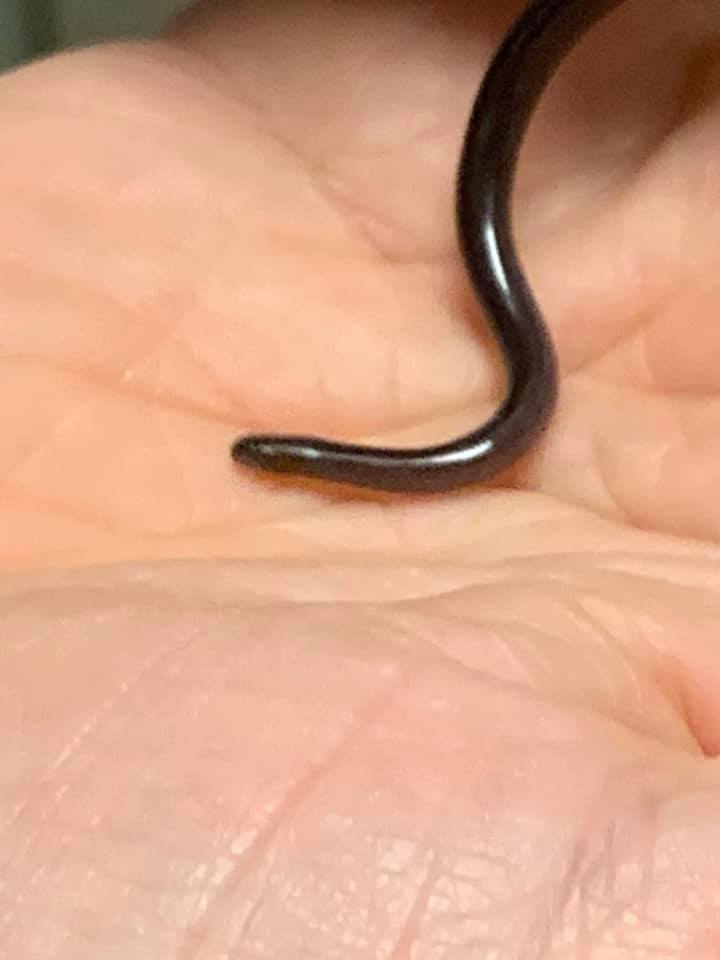 These non-native (introduced) snakes are not only extremely rare in Texas, but are only recently known from a few records in Harris County. It was an exciting find! Also known as the “Flowerpot snake,” it is believed that they spread around the tropical and semi-tropical areas of the world through in the loose soil of flowerpots. They are originally from somewhere around the coastal areas of East Africa and South and SE Asia, along the Indian Ocean.
These non-native (introduced) snakes are not only extremely rare in Texas, but are only recently known from a few records in Harris County. It was an exciting find! Also known as the “Flowerpot snake,” it is believed that they spread around the tropical and semi-tropical areas of the world through in the loose soil of flowerpots. They are originally from somewhere around the coastal areas of East Africa and South and SE Asia, along the Indian Ocean.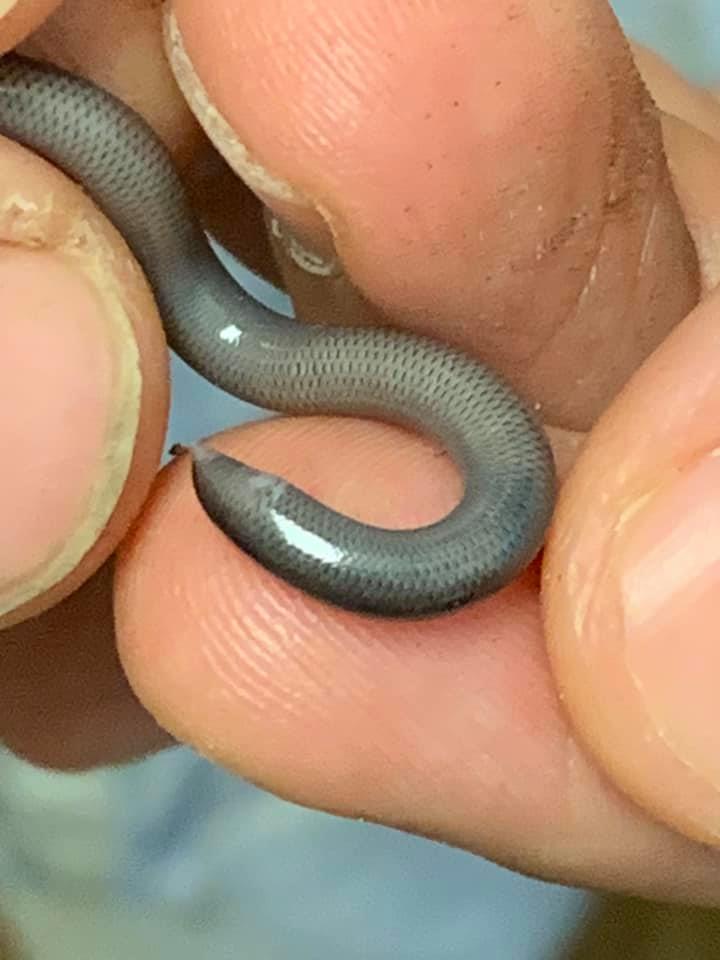 Upon finding this snake for the first time at the Nature Center, we had to make sure that it wasn’t one of the native species. In Texas, we have 3 native species of blindsnake, the Texas blindsnake being the closest native species to Harris County (occurring here only sporadically). Our closest native blind snake can be pinkish-brown to dark brown, and the Brahminy can be dark black to dark brown… so we couldn’t just use coloration to determine the species of our little friend. A couple of us got to do some real herpetology, and dig into the Texas snake books. The Brahminy has up to 20 rows of mid-dorsal scales, while the native species has only up to 14. Also, the vent (back opening) and the tail tip are whitish on the Brahminy. A little macro-photography helped us to zoom in on these characteristics, and determine confidently that we had what we thought we had.
Upon finding this snake for the first time at the Nature Center, we had to make sure that it wasn’t one of the native species. In Texas, we have 3 native species of blindsnake, the Texas blindsnake being the closest native species to Harris County (occurring here only sporadically). Our closest native blind snake can be pinkish-brown to dark brown, and the Brahminy can be dark black to dark brown… so we couldn’t just use coloration to determine the species of our little friend. A couple of us got to do some real herpetology, and dig into the Texas snake books. The Brahminy has up to 20 rows of mid-dorsal scales, while the native species has only up to 14. Also, the vent (back opening) and the tail tip are whitish on the Brahminy. A little macro-photography helped us to zoom in on these characteristics, and determine confidently that we had what we thought we had.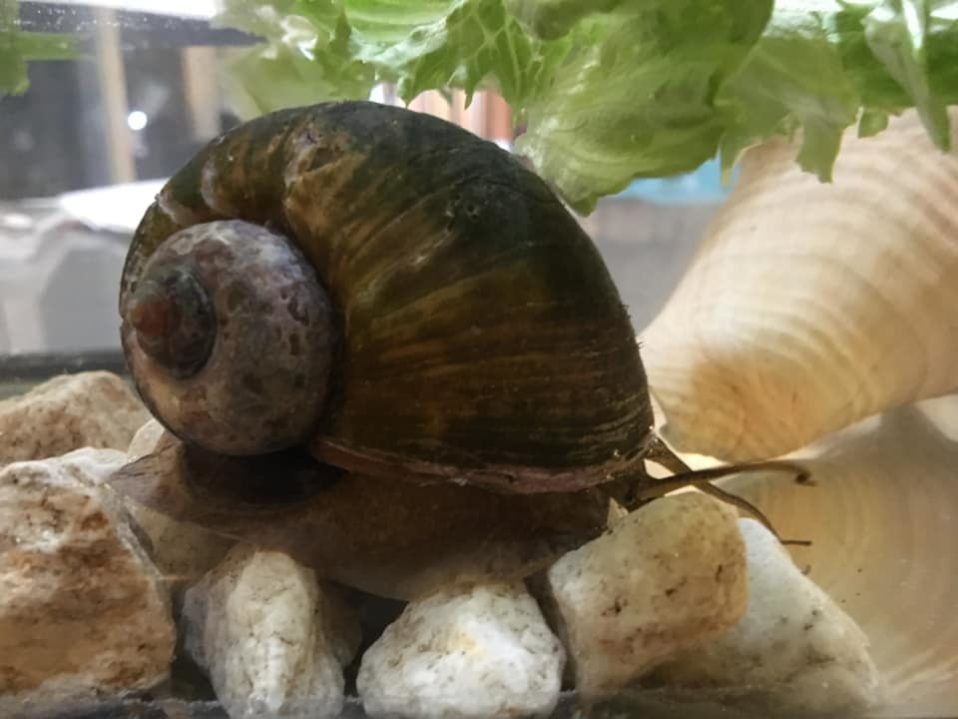
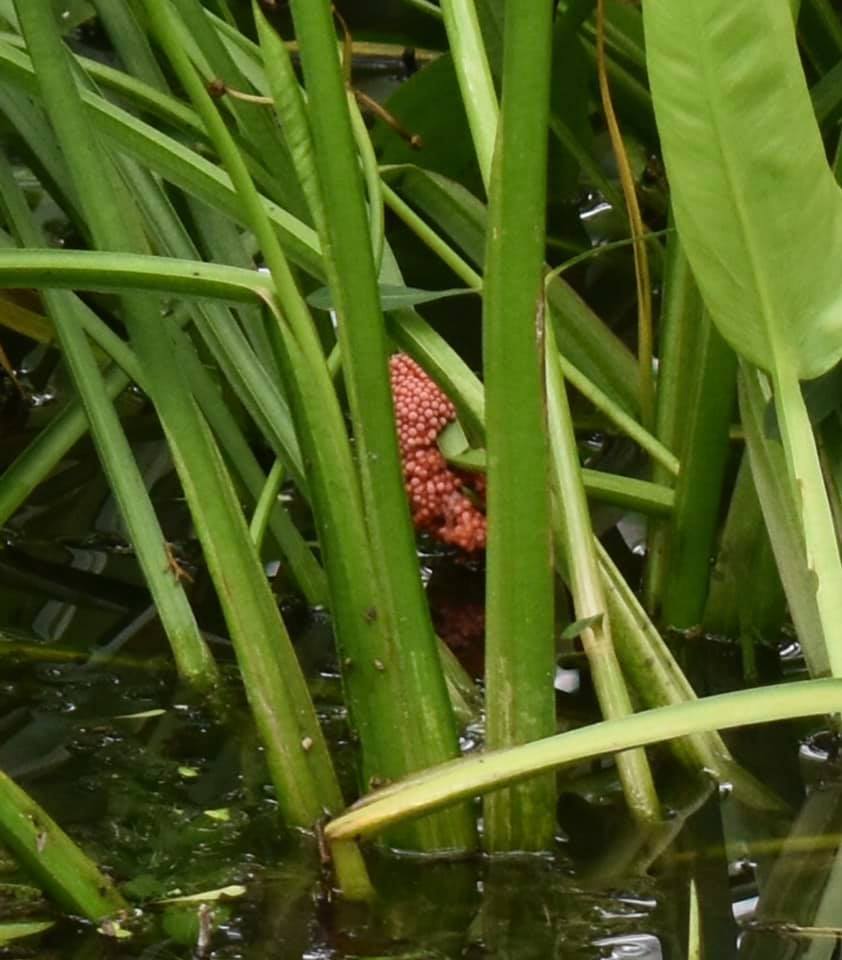
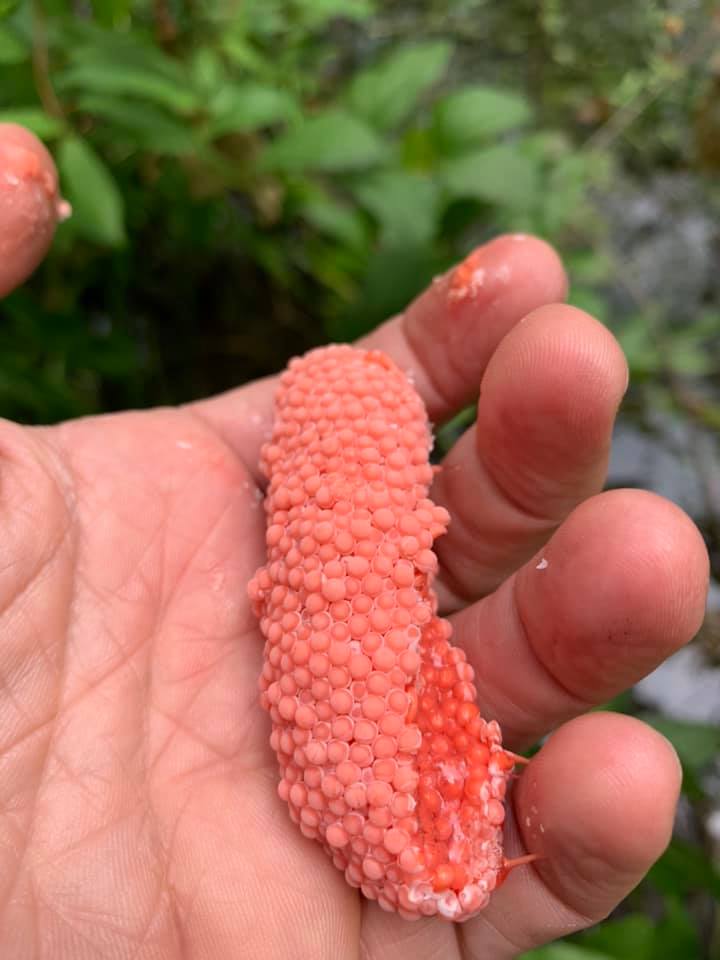
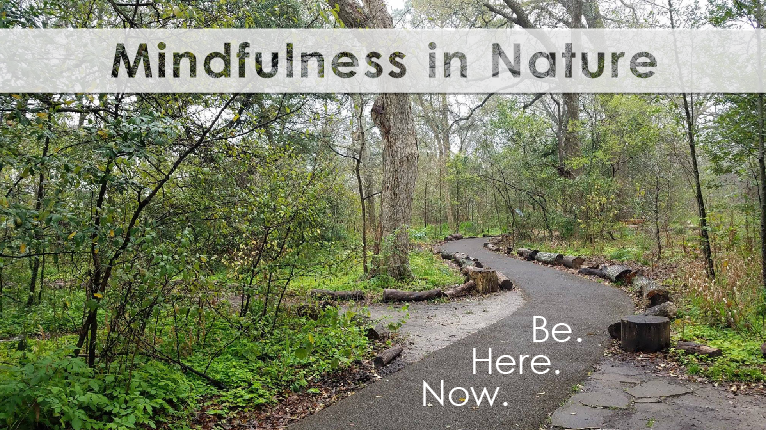
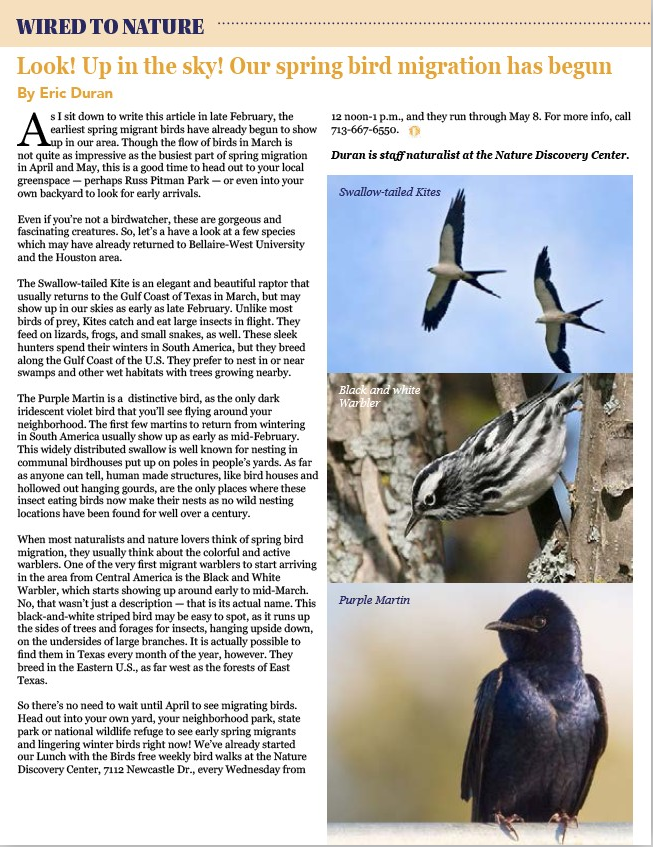
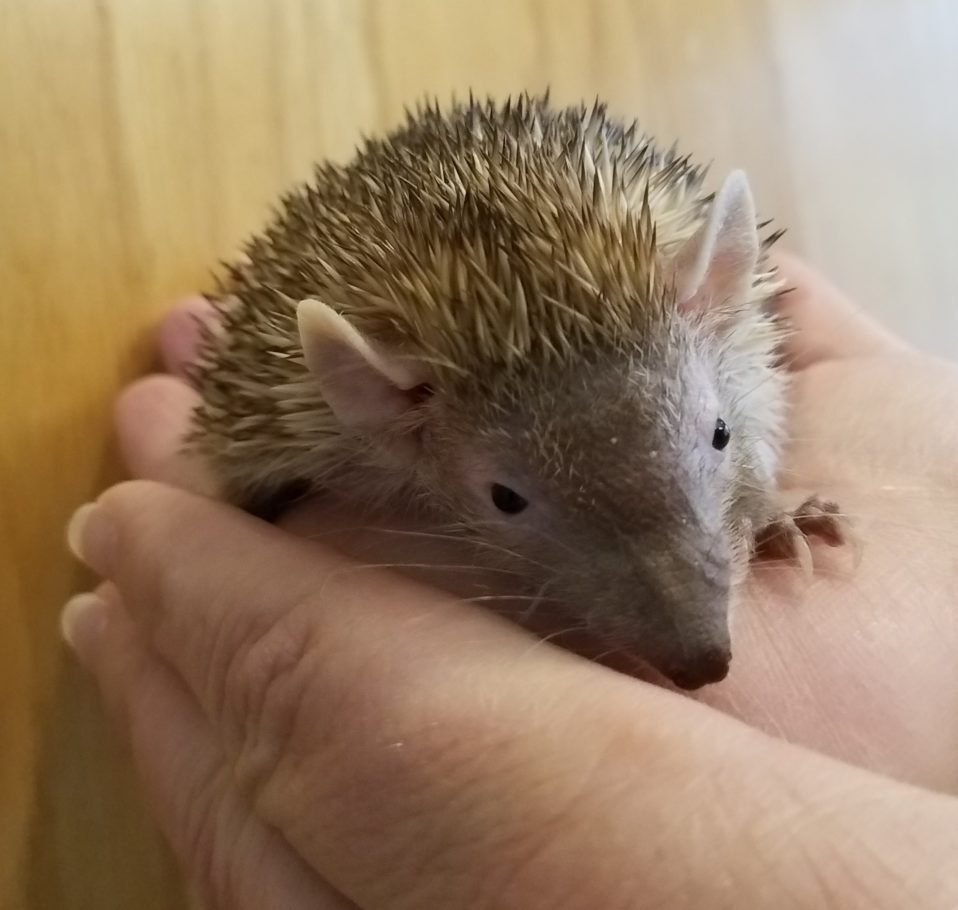
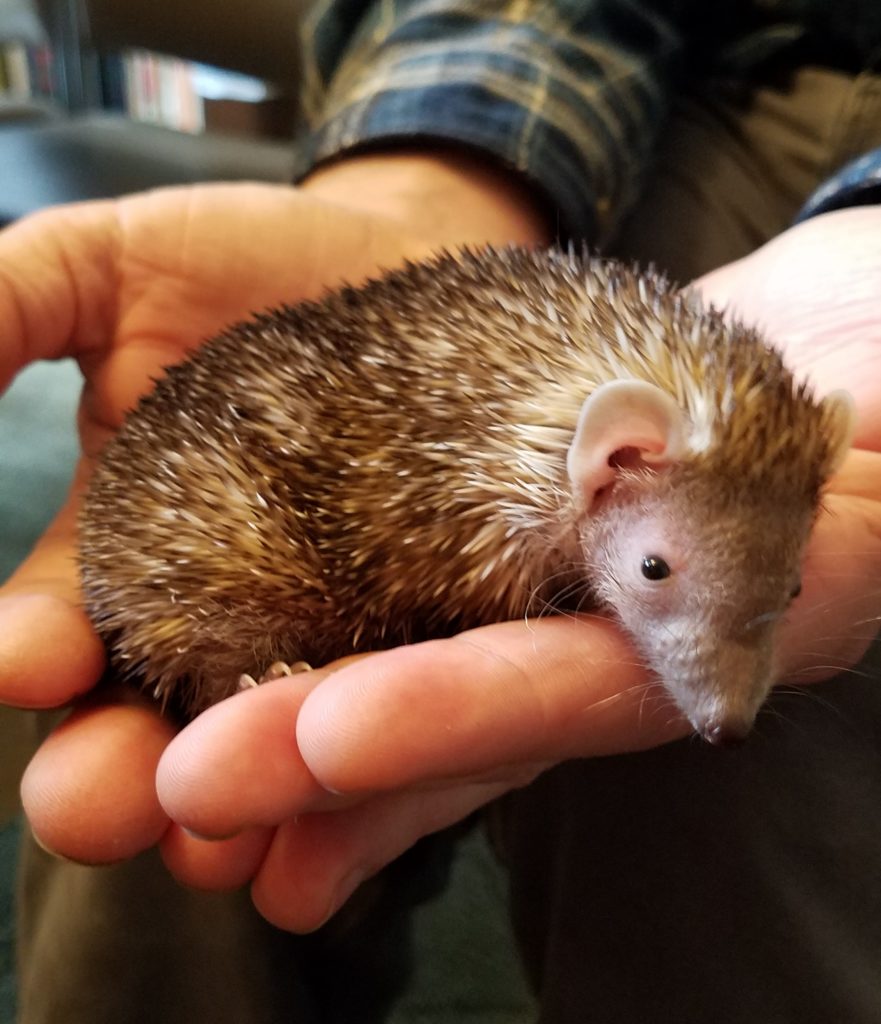
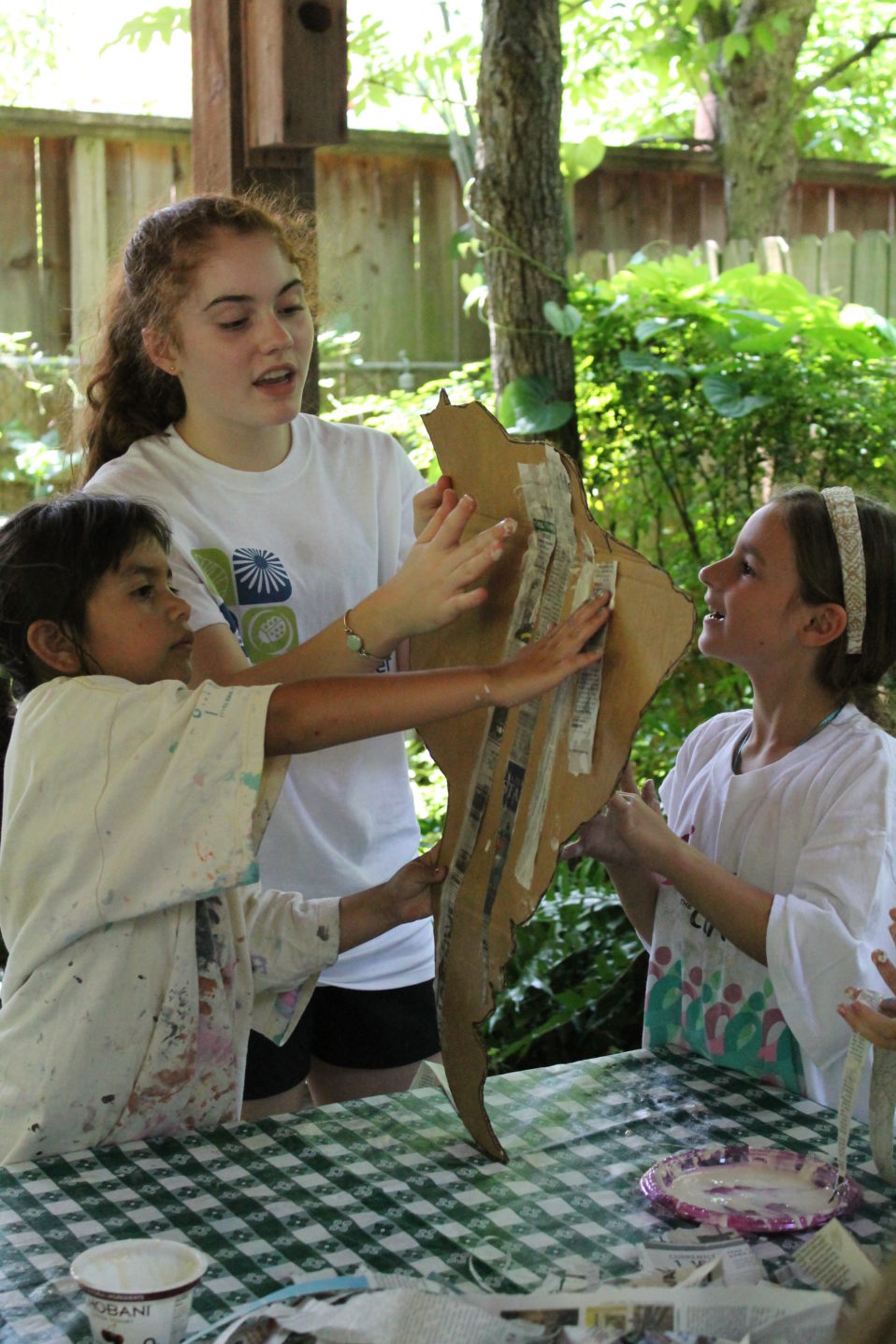
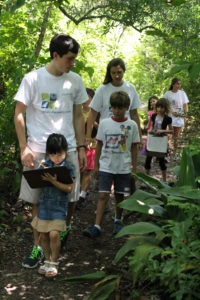 We are looking for a Head Counselor for our Summer Science Day Camp for children (ages 5 to 11). Our camp runs weekly from June 4 to August 20th, and is Monday through Friday from 8:30 to 5:30. You may apply for the job even if you cannot commit to all camp weeks. (We may have two Head Counselors during the summer.)
We are looking for a Head Counselor for our Summer Science Day Camp for children (ages 5 to 11). Our camp runs weekly from June 4 to August 20th, and is Monday through Friday from 8:30 to 5:30. You may apply for the job even if you cannot commit to all camp weeks. (We may have two Head Counselors during the summer.)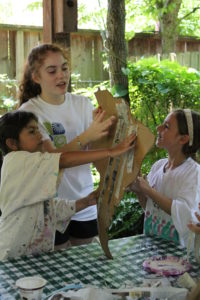 Head Counselor requirements:
Head Counselor requirements: